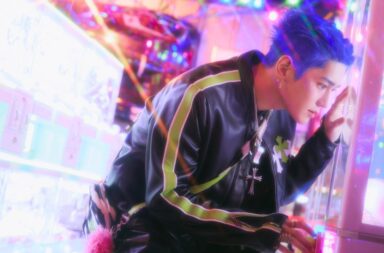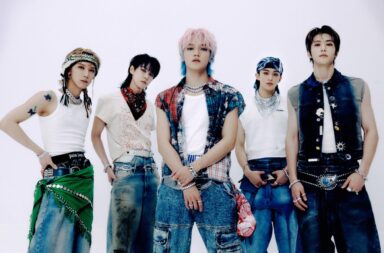This Christmas, we celebrate the 20th anniversary of TVXQ, a pop group that has stood against the test of time, come what may. To discuss TVXQ’s career thus far, the reasons for their longevity, the impact they’ve created in the world of K-pop, and more, Aastha is joined by Nyasha, founder of Nyam with Ny, and writer of works featured in Bad Form Review, Monocle, Sesi Magazine, and WhatCulture.
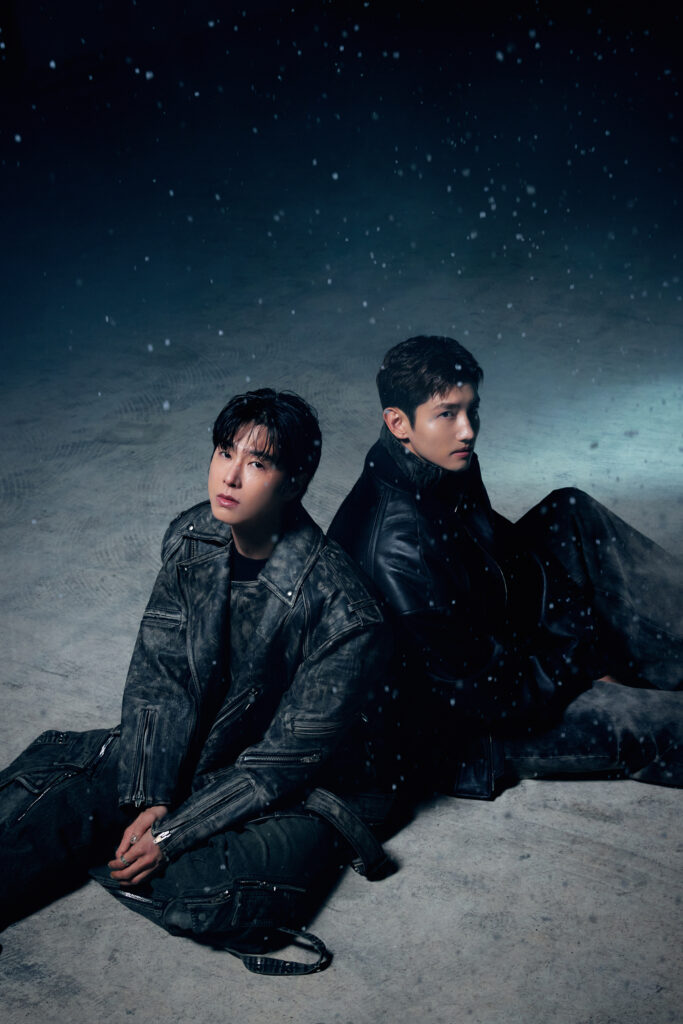
Aastha: 20 years! When I first became a fan (in 2008, starry-eyed at a cute boy who could belt out a hell of a scream), I had no idea I’d still be here for another 15 years. I’ve obviously gone on to discover more songs and more performances beyond “Mirotic”, but I was part of the influx of Cassiopeias (“Cassies”) who were pulled in by the chant of “neon nareul wonhae (wonhae!)”. How did you find yourself in this fandom, Nyasha?
Nyasha: I thought they were a Japanese group (Tohoshinki) when I first discovered them! When Avex labelmate Koda Kumi released her latest song at the time, “Last Angel,” featuring TVXQ, I remember at the time thinking to myself, “Wow, these guys are so cool! Who’s the one with the blonde hair? And who’s that one rapping?” Upon doing a little research, I found out they were Korean and dived into their discography. It’s already been 16 years since I became a fan… where has the time gone? What would you say are your favourite songs or performances?
Aastha: It’s so difficult to choose one, especially when you include both Korean and Japanese performances. Since it’s their 20th anniversary as a Korean act, I’ll focus on that. I can’t choose one song, but I have a soft spot for songs like “Our Game“, “Rumour”, “Viva”, “Jelly Love” — songs that haven’t been performed, but really should have been. When it comes to performances, it’s their 2011 SBS Gayo Music Festival that I find myself rewatching often. It left a lasting impression on me as a relatively new fan with the VCR and build-up to the performance. Another one that always makes me laugh is their performance of “Before U Go” on Inkigayo. The director made the artificial rain pour to the point they could barely open their eyes, and you could tell they were struggling to remain suave.
Nyasha: I’m the same with “Our Game” and “Viva.” I’d also throw in “She” and “Before U Go” because I believe TVXQ’s vocals work really well with slower, R&B-influenced songs. They put me in a good mood whenever I listen to them. Performance-wise, I loved their Music Core performance of Spellbound, but their live performance of Bolero at Nissan Stadium always tears me up! Performing in the pouring rain on a hot June day with the red lights illuminating them? I can only imagine what it was like to hear that performance in person.
The reason I’ve been able to access their content and music since then needs to be credited to the many people in the fandom who have contributed to translating videos and providing news updates. The fan culture has evolved so much from then. My mind definitely goes to the likes DBSKnights, Gods of The East Subbing Squad (GOE;SS), and AADBSK Sub. Their videos are still being reuploaded onto YouTube to this day.
Aastha: We have to acknowledge subbing and uploading teams. Subbing squads, creating teams of translators/encoders/uploaders, the aesthetics of subbing — all of these were created with teams of fans trying to make TVXQ more internationally accessible to the audiences. It’s crazy to see how almost all subbing teams these days follow a similar format; just twenty years back, this was a system that was created by a handful of committed and dedicated fans.
The fandom’s impact in the wider K-pop landscape runs parallel to the impact TVXQ has had in the industry. The structure of having different vocalists (main vocalist, lead vocalist, baritone, tenor, etcetera) was created because TVXQ started as a quintet a capella group. To this day, most K-pop groups come with a similar structure, which worked so successfully with TVXQ that it became a system to mirror. There are a number of things that were created with or by TVXQ that have become so embedded in K-pop, don’t you think?
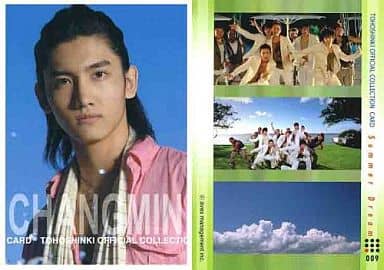
Nyasha: Yeah! Photocards, for one. When I bought their Japanese EP, SUMMER: Summer Dream (two years after its release with the saved-up pocket money), it came with a photocard. I realised that was something new, and they were the first K-Pop artist to do this in 2007.
Aastha: Let’s not forget the series of All About TVXQs. Where would present-day idol travel-variety shows be without the invention of AATVXQ? Groups travelling together, spending time by themselves, having vlogs with pets, couple talks: All About TVXQ was the first set of DVDs in K-pop culture that capitalized on a group making a show out of vacations and getaways. Whether that’s good or bad still remains undecided.
Nyasha: There have definitely been a few widely known firsts that TVXQ accomplished: multiple Guinness World Records, establishing a path for other K-Pop groups to debut in Japan, and songs featured in Hollywood films. Another trend is the establishment of “Airport Fashion“. There wasn’t such a concept before, but eventually became one due to their frequent travel schedules post-2004. They’ve been both criticised and praised for their fashion since it was a time where idols were dressing and styling themselves, but it goes without saying the culture of fansite photos of airport trips really took off after. All of that has now evolved to curated airport looks and HD photos by journalists.
Aastha: For sure. This goes into choreography too. When “Keep Your Head Down” was first released, it was such a big deal that Yunho and Changmin were mirroring each other with one standing in front of the other to make it seem like only one person was dancing when viewed from the front. It is a widely-used choreography arrangement used now, but was considered revolutionary in 2011. The same goes for the prop-based choreography that “Catch Me” and “Something” brought into the scene.
Nyasha: The duration of their time in K-pop is immense, and it makes me ponder as to how they’ve lasted so long — and that’s likely down to their sound. It goes without saying that Yunho and Changmin’s will to stay a group plays a big part in the supply, but it’s the demand that they’ve kept generating that has ensured their longevity. Despite music trends constantly changing, their discography has been one that’s adaptable and artistically-driven, standing out even amongst many new groups. Songs like “The Chance of Love“, “Apology“, “Mirrors“, “La Rosa“, and most recently “Down” retain their style but also show they are able to bring their voice to any type of song. Would you agree?
Aastha: Definitely! Commentary on forums about “Down” echo what you said: it brings back a 2000s K-pop sound to it (the vocal arrangement and the dance break specifically) but with the instrumental modernisation it needs to stay relevant to current times. Similarly, “Sooner Than Later” is one that meshes the old with new perfectly.
Sound-wise, TVXQ’s trajectory has been very interesting. They’ve made some big shifts in their musical exploration every few years – from SMP-heavy, to EDM, to jazz, to R&B. Part of their musical charm is that they’re not afraid to experiment. For fans who love variation and exploration of different genres, TVXQ provide a mix for them. However, they’ve managed to stay true to their identity with their ballads and their pop music. Sure, their pop music evolves (“Purple Line” to “Mirotic” to “The Chance of Love” to “Down”), but it has core elements that are unchanged: a chorus where all the members harmonise and sing together (a rarity in K-pop now), impressive vocal arrangement, and an instrumental that highlights (not drowns) said vocals.
Nyasha: I do love how TVXQ keep elevating themselves with every release. Like many, however, I’ve also fallen victim to the trend of nostalgia and would love to see them rehash previous concepts such as “Tri-Angle“/”Dangerous Mind” or those with with darker themes like “Million Men” and “Darkness Eyes“.
Aastha: What I would do to see a 2023 rendition of “Tri-Angle”! Down to the hairstyles!
I’ll admit I have a rather unpopular opinion, though. While I appreciate their history, I find the nostalgic appeal to their music exaggerated. Their vocal prowess and instrumentation has improved bounds over the years, and the delivery of their music over the past few years (both in Korea and Japan) is top-tier. It’d be good to see them perform more b-sides from their more recent albums.
Another reason they’ve survived so steadily for so long is that they know their target audience is, and they only cater to these fans. Even for the promotions of 2023’s 20&2, their promotional strategies are localised to Korean fans (and the same goes for Tohoshinki’s approach in Japan). They’ve prioritised variety shows that are popular in Korea as opposed to globally, aware of the fact that longevity comes mostly with the support of domestic fans. Of course, there’s the downside that they lose out on an international demographic, and I wonder if a wider reach would help them, but they could also lose themselves amongst the gazillions of groups trying to reach western success forgoing domestic marketing. I appreciate the definitive strategy they have in marketing themselves.
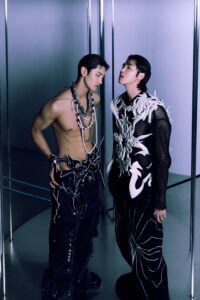
Nyasha: I’d like to see if SM will have another surprise in store (like more tour dates for international fans). The closest I ever got to seeing them was Music Bank Paris in 2011 but it would be nice for fans across various countries to attend a TVXQ concert if they ever came to their city. I also think being in a unit with other idol members would be a great venture, just like how their juniors, Taemin and Sunmi, did a performance for the 2019 MAMAs or the iconic Wonder Girls–Big Bang collaboration in 2008. What would you look forward to seeing TVXQ do in the future, Aastha?
Aastha: There are plenty of paths I’d like them to take. I’d like them to continue with the immaculate quality of music videos they’ve been putting out since 2019 – “Thank U”, “Devil”, “Reality Show”, “Maniac”. Additionally, it’s fantastic that they’ve started to establish individual presences in the entertainment industry: Yunho has been hosting various (hilarious) YouTube series, and Changmin has been blazing his way emceeing and hosting TV shows. It would be great to see them be creative with their social media approaches in the same manner, and to explore avenues like vlogs and lives. When it comes to TVXQ, I personally sense a hesitation to compete on the same stage as younger groups, but I hope to see them use their 20 years of experience to show how veteran experience can set them apart in the K-pop scene now.
(YouTube: [1] [2] [3] [4] [5] [6] [7] [8] [9] [10]. KBS, Sports Chosun, BNT News, TVDaily. Images via: SM Entertainment, Avex Entertainment.)
